Notes from a water researcher who became a flood victim in Bhagalpur, Bihar
Inhabitants of ‘Silk City’ Bhagalpur in Bihar are not unfamiliar with floods, since they live on the banks of river Ganga. At least once in two years the river breaches her embankments and inundates areas along its route. However, this year, the floods have been extraordinarily disruptive and I was a flood-victim too.

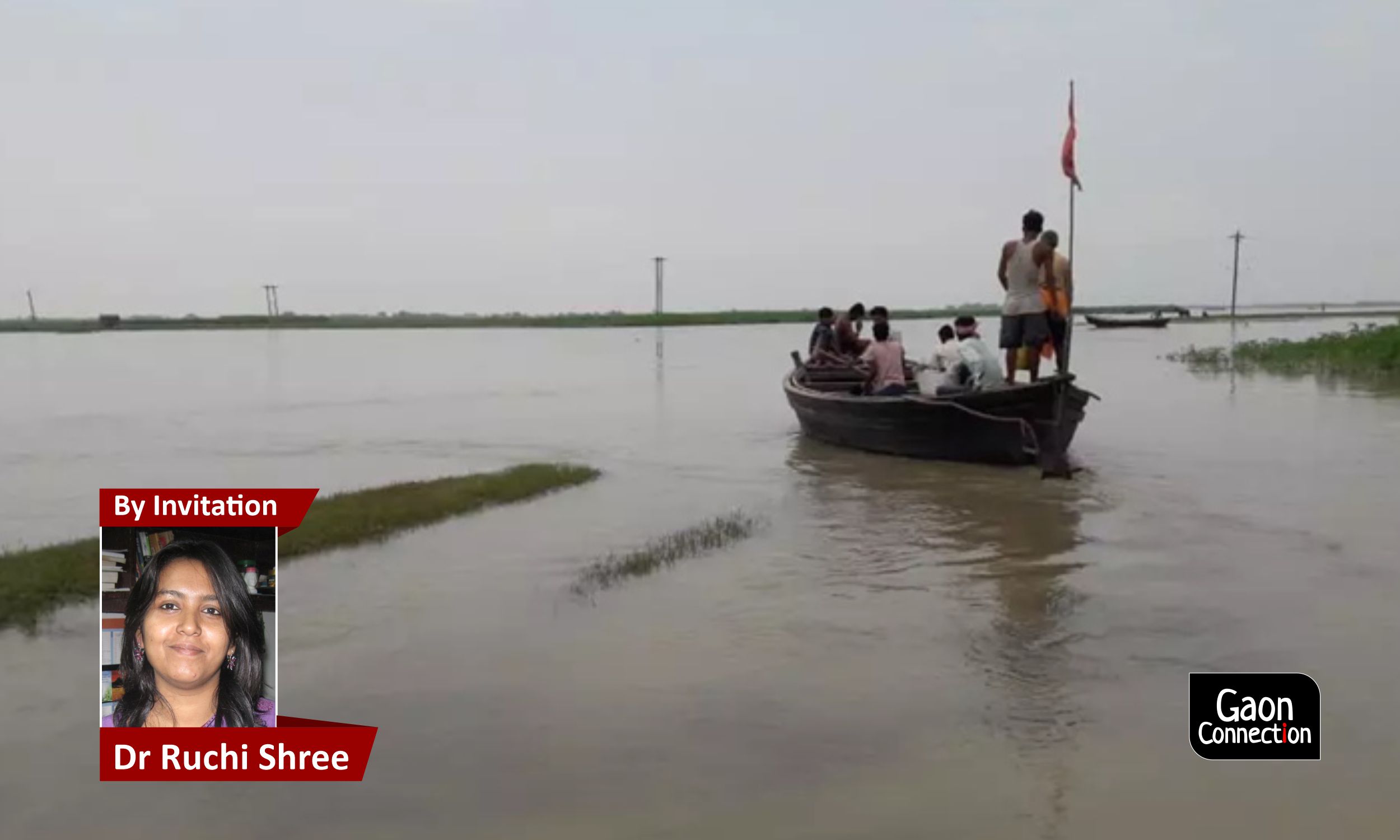
This year the floods in Bihar have been different and far more devastating in many ways. Photo: Gaon Connection
About a kilometre away from Lalbagh Professor Colony in Bhagalpur, where I live, is village Dildarpur that is flooded annually. It rarely makes news as the mainstream media rarely finds it important, or worth the TRP numbers, to document and discuss the miseries of flood-hit villagers of Bihar.
However, this year the floods in Bihar, which have been going on since the arrival of the monsoon in June, have been different and far more devastating in many ways.
Within a short span of time, in just a couple of days, I watched rural floods, an annual occurrence in Bihar, turn into a massive urban flood. I watched the floodwaters come closer to my home on a daily basis. From a boat floating in floodwaters about 300 metres away and villagers hurrying with whatever belongings they could salvage, to being marooned in my colony, it was nothing short of a nightmare.
Also Read: Bihar Floods 2021: A month on, flood and fury lashes in Bihar
I never imagined that in the space of a week, I would become a flood victim and find it very difficult to keep my fears at bay, and write about my ‘flood experiences’.
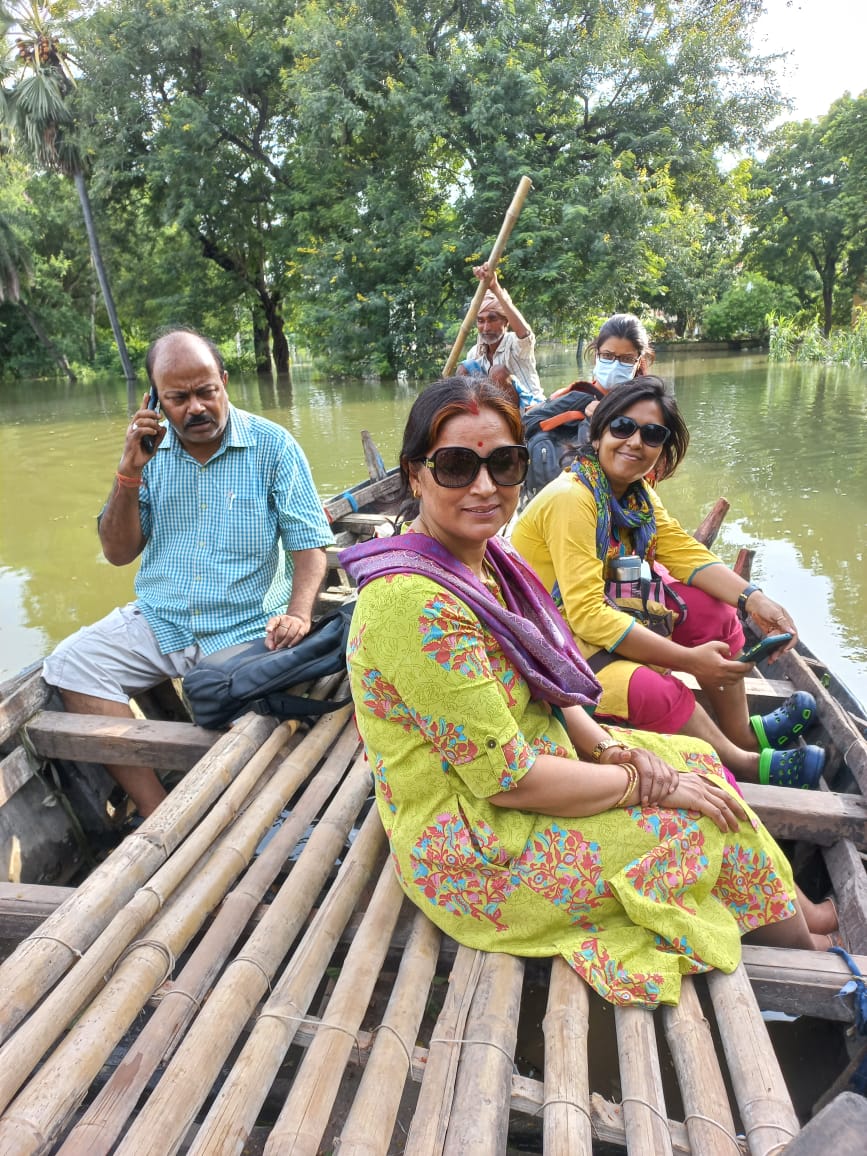
I found myself going by boat to Bhagalpur University (formally known as Tilka Manjhi Bhagalpur University) to teach instead of riding my cycle like I usually did everyday. The university is located in an area called Nathnagar, very close to where the Ganga flows. While my six-year-old daughter Manvi found the boat rides and flood waters exciting and thrilling, I was filled with dread.
While water experts such as water conservationist, the late Anupam Mishra of Gandhi Peace Foundation, and Dinesh Mishra of Barh Mukti Abhiyan (a non profit that works at the grassroots level on matters related to floods), say floods should not be looked on as an adversity, it is difficult to do that in practice.
Climate change and its impact are no longer part of some distant future, but a very scary reality that is unfolding in the here and now. And the purpose of this essay is twofold. One is to share my personal experience, and the other to look at the multidimensional impact of floods in an urban setting.
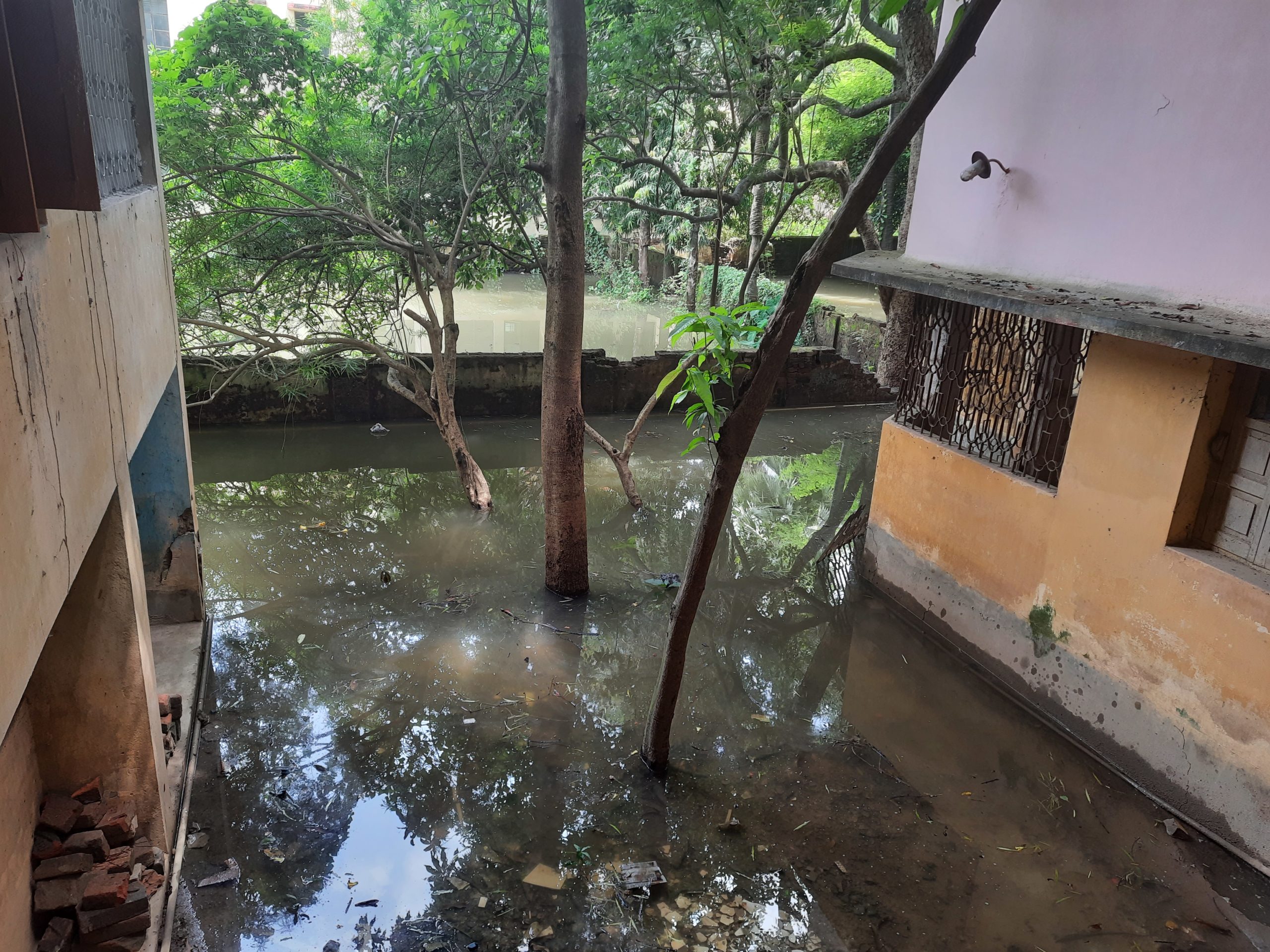
Also Read: Endless cycle of displacement leaves villagers in Bihar in a flood of misery
When flood observer turned flood victim
In the past three weeks, I have played the role of a flood observer, a flood victim and a flood survivor. In the process, my emotions, thoughts and opinions have ebbed and waned but in articulating them, it has also forged a sense of empathy with other flood-affected people.
The first problem we faced was that of water. As soon as the floodwaters reached the water pipes, the motor stopped working and the water supply to our tanks stopped. It was but a matter of time before the electricity supply was cut off too.
Spotting insects, scorpions, snakes, etc., in the waters flowing outside our homes was scary. Even worse was the endless plastic garbage like bottles and packets that floated past. The filth and stench progressively grew worse day by day.
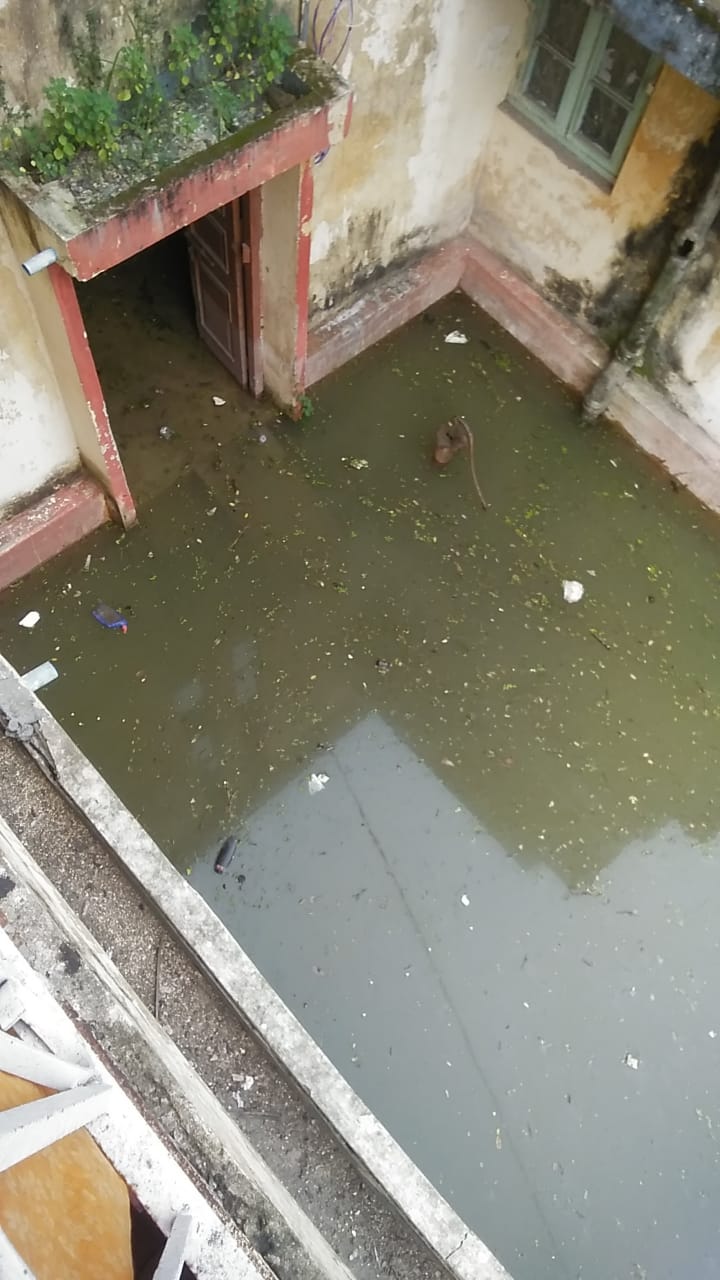
I was grateful we did not live on the ground floor because the floodwaters began to enter those homes. People on the ground floors were forced to shift their valuable belongings to upper floors or even take other homes on rent elsewhere to move into. Many people I know planned on never coming back.
Many of us shifted to the university guest house while I decided to move 250 kilometres away to Patna for a week. I was not sure whether things would return to normal but taking a break seemed urgent. But when I reached the Bhagalpur railway station, I learnt that flood waters had covered some of the tracks and that trains would be suspended for a few days. I somehow managed to take another route via Naugachia, to leave Bhagalpur and reach Patna the next day.
I returned to Bhagalpur after a week, leaving my daughter behind with her grandparents. It was a wise decision as in Bhagalpur, I still could not return to my home and had to seek refuge with friends for three to four days.
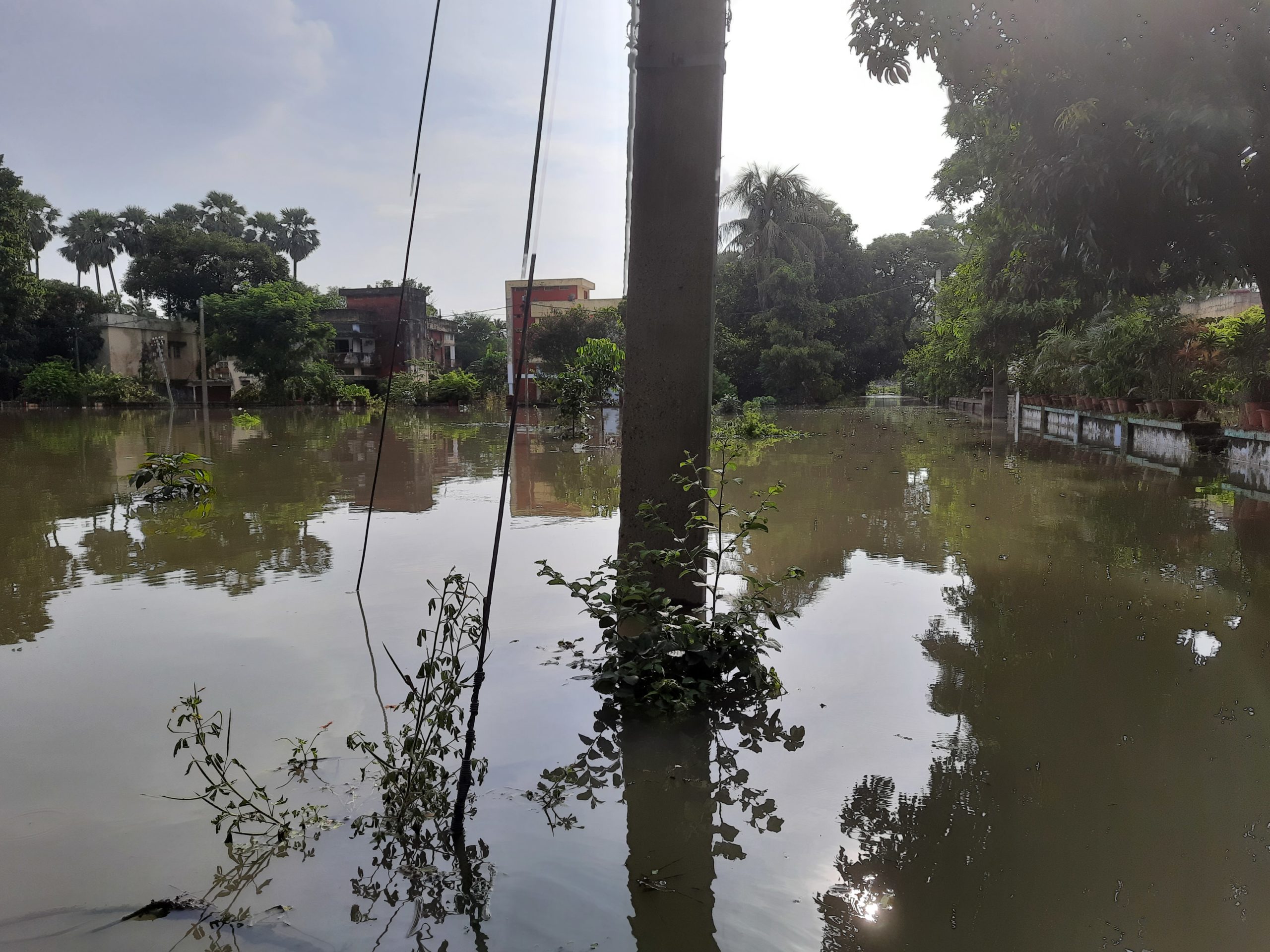
In conclusion, from being a flood observer to turning into a flood victim, I felt that the floods washed away the chasm between the rich and the poor, and the urban and the rural. For the first time in my life I experienced problems such as displacement, water shortage and inability to move away from the flood affected area because the railways suspended its operations.
Being an urban flood victim forced me to think of the other people in Bihar who live this experience year after year, generation after generation. I also realised that researching water-related issues was one thing, but actually encountering a flood was quite another. It is important for the individuals, the state government and the society at large to learn valuable lessons from the terrible floods this year. These three actors need to work in tandem to resolve differences and bring about positive change in the long term.
Dr Ruchi Shree is Assistant Professor in the Department of Political Science of the Tilka Manjhi University, Bhagalpur (Bihar). She has been researching and writing on water-related matters for 15 years.
Also Read: Known predominantly for droughts, why are districts in south Bihar facing floods?

